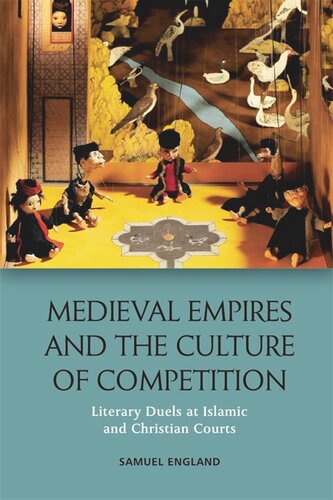

Most ebook files are in PDF format, so you can easily read them using various software such as Foxit Reader or directly on the Google Chrome browser.
Some ebook files are released by publishers in other formats such as .awz, .mobi, .epub, .fb2, etc. You may need to install specific software to read these formats on mobile/PC, such as Calibre.
Please read the tutorial at this link: https://ebookbell.com/faq
We offer FREE conversion to the popular formats you request; however, this may take some time. Therefore, right after payment, please email us, and we will try to provide the service as quickly as possible.
For some exceptional file formats or broken links (if any), please refrain from opening any disputes. Instead, email us first, and we will try to assist within a maximum of 6 hours.
EbookBell Team

4.1
40 reviewsA probing inquiry into medieval court struggles, this book shows the relationship between intellectual conflict and the geopolitics of empire. It examines the Persian Buyids’ takeover of the great Arab caliphate in Iraq, the counter-Crusade under Saladin, and the literature of sovereignty in Spain and Italy at the cusp of the Renaissance. The question of high culture—who best qualified as a poet, the function of race and religion in forming a courtier, what languages to use in which official ceremonies—drove much of medieval writing, and even policy itself. From the last moments of the Abbasid Empire, to the military campaign for Jerusalem, to the rise of Crusades literature in spoken Romance languages, authors and patrons took a competitive stance as a way to assert their place in a shifting imperial landscape.